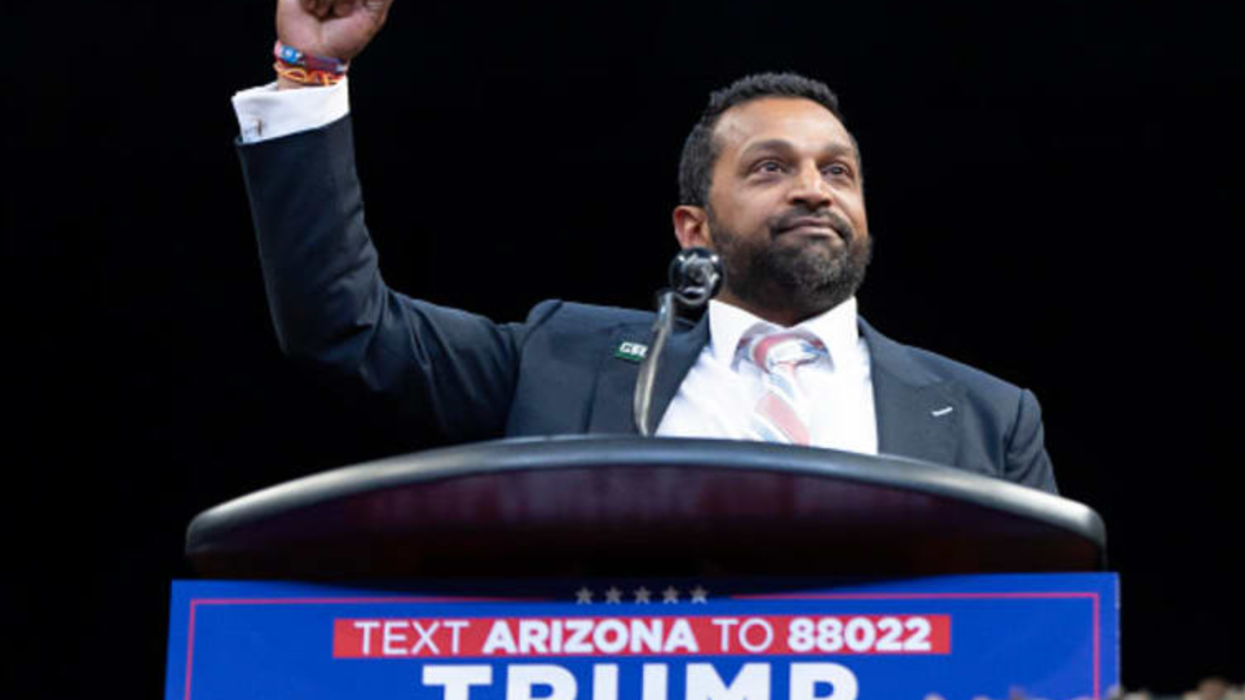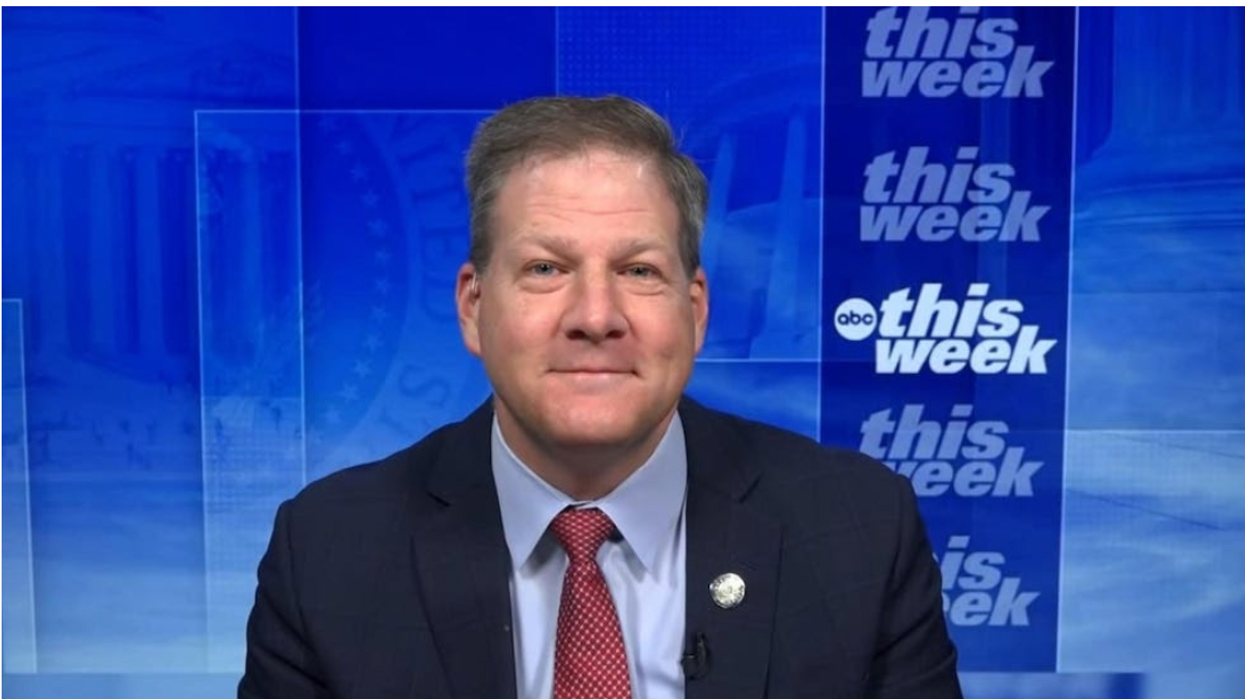Nominated For FBI Director, Patel Is Just A Standard Issue MAGA Con Man
For organized criminal gangs and foreign espionage agents operating in this country, their most cherished daydream would be to cripple the law enforcement agency dedicated to curtailing them – namely, the Federal Bureau of Investigation.
Ranked among those enemies of the rule of law, of course, are many of President-elect Donald J. Trump’s closest associates -- who are, like him, convicted felons -- from Roger Stone and Mike Flynn to Paul Manafort and Steve Bannon, always whining about the agency that arrested and arraigned them.
Now, with the announced appointment of Kashyap Patel as FBI director, Trump aims to realize their fantasy of ultimate vengeance against law enforcement. Like so many Trump appointees to top government posts, Patel has a resume devoid of any qualifcations for this position, one of the most sensitive and vital in the US government.
He has no comprehension of how to protect the nation from foreign adversaries or domestic threats and has scarcely even pretended that will be his purpose. Instead, he has repeatedly threatened to misdirect national security resources against “the enemies within” – anyone who has dared to hold Trump accountable.
Patel will be sent into the FBI headquarters to dismiss its key personnel, dismantle its infrastructure, and induce fear in its ranks – all of which can only impede its mission. The potential consequences for the United States are so dire as to raise once again the question of where Trump’s true allegiance lies – and who truly directs his actions.
The director-designate is a clownish figure who has made a business of prostrating himself to Trump every day in the most ostentatious style, often by concocting and advancing conspiracy claims that bolster the MAGA cause. He is also a former Justice Department attorney with an empty record, who has falsely asserted that he led the federal prosecution of a Benghazi terrorist – when the public record shows he had no role in the case at all.
He has associated himself with the most reprehensible cult propaganda campaigns, ranging beyond Trump’s fraudulent claims of 2020 election fraud and into the poisonous QAnon mythology that accuses prominent Democrats and Hollywood figures of such perversions as child sex trafficking and cannibalism.
In other words, Kash Patel is a standard-issue MAGA con man. He also appears to be a small-time grifter, again like so many around Trump. Two years ago he registered a tax-exempt nonprofit called the Kash Foundation, which outlined its grandiose mission on its website: “The foundation focuses on providing legal support for whistleblowers and media accountability; filling gaps in mainstream media coverage and educating the public on critical issues; providing assistance to veterans, active duty service members, and law enforcement; and providing scholarships and tuition grants for higher education.”
The Kash Foundation’s latest IRS return is an amusing document, which reveals that “interested parties” have sucked in more of those tax-exempt revenues than any supposed charitable beneficiaries. Looking over the website, the true purpose of the foundation seems obvious: to promote Kash Patel and his profile on the far right. Or as a spokeswoman put it, “The foundation turned the tables on the adversity faced by Kash due to disinformation and media targeting, transforming it into a force for good .The Kash Foundation’s latest IRS return is an amusing document, which reveals that “interested parties” have sucked in more of those tax-exempt revenues than any supposed charitable beneficiaries.
With annual receipts of around $1.2 million, the foundation claims to have given $5000 grants to nonprofits benefiting the homeless in Nevada, church women in Virginia, and Air Force special operations veterans, and another $157,000 in direct cash grants to 50 unnamed individuals. But the big winner is a director of the foundation who also runs a media consulting business – and glommed more than $275,000 for “marketing services” and merchandise.
In misusing a charitable foundation to promote himself, Patel is mimicking his idol, who created a template for that kind of avaricious abuse with the Trump Foundation – eventually shut down by New York state authorities, fined $2 million, and forced to disgorge its remaining assets to actual charities. As FBI director he would provide a sore example for the attorneys general in every state, whose duties usually include oversight of charities.
Patel’s appointment is a raised middle finger to every honest law enforcement official in this country, including every man or woman who ever served in the FBI or the Justice Department, and a looming menace to the nation’s security at home and abroad. As with the aborted appointment of Matt Gaetz, it’s an insult requires Senate Republicans overcome their usual cowardice to fulfill their constitutional oath.
Keep in mind that President Biden did precisely the opposite when he entered the White House in January 2021. Biden kept FBI Director Christopher Wray -- a lifelong Republican appointed by Trump -- as a sign that he intended to maintain the federal justice system's integrity. He didn't oust Wray to replace him with a Democrat, let alone a sycophantic stooge from his own political entourage.
No one should doubt Trump’s determination to install his lackey in this critical post. He already tried to place Patel in the FBI leadership during the final months of 2020 – but Bill Barr angrily rebuffed that outrage and Trump retreated. In his 2022 memoir, the former attorney general noted that "Patel had virtually no experience that would qualify him to serve at the highest level of the world's preeminent law enforcement agency.”
That is why the criminals and spies who surround Trump are applauding so loudly.
Joe Conason is founder and editor-in-chief of The National Memo. He is also editor-at-large of Type Investigations, a nonprofit investigative reporting organization formerly known as The Investigative Fund. His latest book is The Longest Con: How Grifters, Swindlers and Frauds Hijacked American Conservatism.












